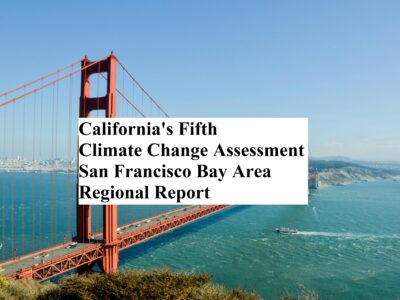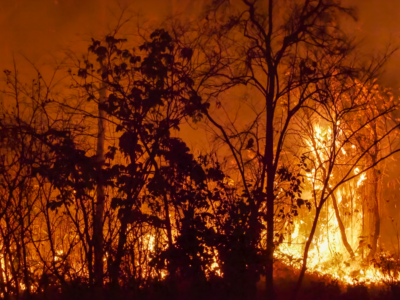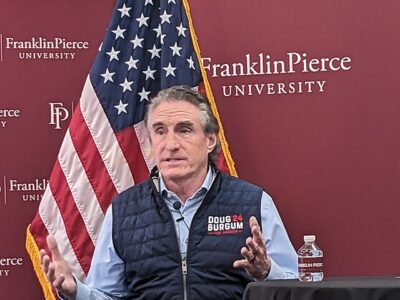Another CEQA urban residential exemption bill
AB 609 provides a different and promising approach for advancing urban infill, but it could use a map
Following up on my recent post about SB 607, which proposes creating a California Environmental Quality Act (CEQA) exemption for urban infill housing, a similar bill, AB 609, has also been introduced this session. Like SB 607, AB 609 exempts from CEQA housing projects in urban areas. The main difference with respect to the infill exemption provision is that SB 607 simply instructs a state agency (the Office of Land Use and Climate Innovation) to develop a map of urba...
CONTINUE READINGThe NIMBY Presidency
Peter Navarro hates foreign trade. He also hates housing.
Well what a surprise. Not: Before Peter Navarro designed trade wars for President Trump, he orchestrated housing wars in San Diego across five unsuccessful bids for local office. Navarro, then a UC Irvine economics professor, led San Diego's slow-growth movement in the 1990s, drawing battle lines that still define today's development fights. His zero-sum view on homebuilding then reflects the zero-sum view on trade that animates the tariffs he helped design. T...
CONTINUE READINGLocal EV Leadership During Federal Withdrawal
The clean mobility transition is in local hands.
The federal landscape for electric vehicle (EV) investment is laden with pause and uncertainty. High-profile program discontinuations–both planned and executed–threaten to disrupt EV deployment efforts, while unpredictable tariffs interfere with drivers’ ability to afford vehicles. As local leaders work to reconcile ambitious transport decarbonization goals with the current lapse in federal climate leadership, public planners, automakers, and EV advocates must iden...
CONTINUE READINGIs Trump Good for the Oil Industry?
Not particularly, it would appear. If there’s an effect, it’s not big enough to hit the eyes.
Given that Trump adores oil and views it as a key source of national wealth, you’d think his election would be a boon for the oil industry. If he is aiding the industry, that doesn't stand out in looking at the stock market. Oil stocks went up and the day after he was elected, and again after he was sworn in. That suggests some market sentiment in his favor. But, as our former President would have said, here’s the thing: the market sagged back down just as quickly. ...
CONTINUE READINGChevron’s Losing Play to Avoid Big Damages
Chevron sponsored Super Bowl LIX events and science classes for New Orleans children just weeks before a Louisiana jury ordered it to pay $745 million in damages.
In February and March, Chevron generated headlines for its charity at the Super Bowl in Louisiana. This month, the oil company made very different headlines for being ordered to pay $745 million for damage to the Louisiana coast after a jury verdict. One of these stories shows the company as a town hero in a parade; the other as a villain doing a perp walk out of the courthouse. Chevron wants you to remember one and not the other. Don’t fall for it. Before the...
CONTINUE READINGMAGA vs NOAA, Executive Orders, and Growing IRA Support
The Drain is a new weekly roundup of climate and environmental news from Legal Planet.
Trump wants to “Make Weather a Mystery Again.” The news that started leaking last Friday is that the Trump administration wants to break up the National Oceanic and Atmospheric Administration and essentially end NOAA’s climate work by abolishing its primary research office and forcing the agency to instead help boost U.S. fossil fuel production, according to lots of reporting based on budget documents. “This would really be a decapitation strike against cl...
CONTINUE READINGHelp Shape the Bay Area’s Climate Future
Seeking input from local leaders, organizations, and individuals to shape California’s Fifth Climate Assessment for the region
The California Climate Change Assessment is a key initiative to understand and address the state's climate impacts and build resilience through informed decision-making. California’s Fourth Climate Change Assessment included a series of technical reports, regional summaries, and a statewide synthesis covering key issues such as extreme heat, wildfires, and sea level rise—providing critical guidance for adaptation efforts. The State is currently developing it...
CONTINUE READINGWildfire Liability in California: A Primer
California has a unique approach to lawsuits against utilities for causing fires.
The fires in L.A. have put litigation over wildfires on the front page and spotlighted California’s unique approach. But such litigation isn’t new. In 2019, Pacific Gas & Electric filed for bankruptcy because of billions of dollars of potential liability from fires the previous summer. The firm was faced with 750 lawsuits, ultimately entering a $13.5 billion settlement. Lawsuits in other states have ranged into the $100 million range and above, but California�...
CONTINUE READINGMore state and local attention to financing can advance sustainable groundwater management
In 2014, California passed the Sustainable Groundwater Management Act (SGMA), a law that establishes a statewide framework for advancing the long-term availability of the state’s groundwater resources. SGMA’s framework provides local government with relative flexibility to manage its groundwater resources, but gives state agencies oversight authority and the right to intervene. SGMA requires local Groundwater Sustainability Agencies (GSAs)to develop groundwater s...
CONTINUE READINGDoug Burgum Explains It All For You
Is the Interior Secretary loony or cynical? We report, you decide.
Worried about the state of the National Park System? Concerned about whether Elon Musk’s chainsaw is destroying irreplaceable groves of Sequoias? Have no fear! Under criticism for staff cuts across the country, Interior Secretary Doug Burgum is directing national parks to “remain open and accessible” and says officials will ensure proper staffing to do so. The order, issued late Thursday, also calls for a detailed review of each park’s operating hours, trail ...
CONTINUE READING










